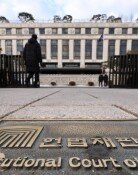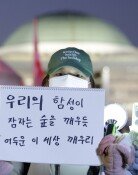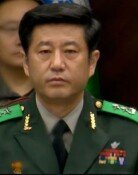[Editorial] Troop Deployment to Iraq In Light of U.S. Policy Changes
[Editorial] Troop Deployment to Iraq In Light of U.S. Policy Changes
Posted November. 14, 2003 22:58,
The U.S. strategy in Iraq is turning to an early transfer of sovereignty and the withdrawal of considerable U.S troops. The U.S. government is seen to be seeking escape from the situation since the deaths of 31 people, including soldiers and policemen from Italy, in the terrorist bomb attack in Nasiriya of southern Iraq, which had formerly been evaluated as a safe zone.
It is a crucial change of situation, since the U.S. policy change is directly related to the deployment of Korean forces. It follows naturally that we should make adjustments to our policy if U.S does, because the U.S has called on Korea to send troops to Iraq. President Rohs order to investigate the deployment of three thousand troops for the reconstruction project, reported by Cheong-wa-dae, is no longer binding since it did not take the sudden U.S. policy change into consideration.
Given that the U.S. in fact appears to be considering withdrawal, it would be foolish to make decisions on troop deployment based on the former, now defunct, policy. Ever since the terrorist attack against Italian soldiers and policemen, public opinion worldwide has quickly worsened over the issue, even with Japan postponing deployment of their self-defense troops until next year. Unless the Korean government reconsiders the new situation, it will be difficult to persuade people who are against deployment.
In light of this, the annual meeting of the Korean-U.S. security committee to be held in Seoul next week is very important. The U.S should explain its policy on Iraq in detail and make its requirements concrete and clear. It should not ignore the worsening situation in Iraq and put pressure on Korea to fulfill its needs. Unless it intends to send Korean troops to dangerous zones to replace their withdrawing forces, the U.S. should provide a convincing basis for its arguments.
The Korean government has made difficult and painstaking decisions, taking into consideration the relationship between Korea and U.S. allies. However, we should not relax with the recent changes; rather, we should remain alert to the end. We should firmly refuse to follow their requests if they are excessive with regard to our deployment capacity, the concerns of the people, and general changes in circumstances. It should be kept in mind that the safety of the deployed troops depends on the choices of our government.
Through these editorials, we have presented our opinions on deployment several times, consistently insisting that the president make cautious decisions regarding deployment based on our national interests and sovereignty, request by the U.S. and adoption a resolution by the Security Council of U.N. We believe that a decision to deploy troops should not be based on rash judgments or a minority opinion. Now is the time for the person with the highest responsibilities in government to make wise decisions that take into consideration not only domestic concerns, but also changed international circumstances.
Headline News
- Pres. Yoon refuses impeachment documents for a week
- Debate over Lee’s participation causes friction in government consultative body
- Food and dining prices could increase en masse next year
- Foreign couple borrowed over $2 million to buy a Seoul house
- One-third of Japanese companies keep workers employed until 70







